A theological appraisal of Nnamdi Kanu
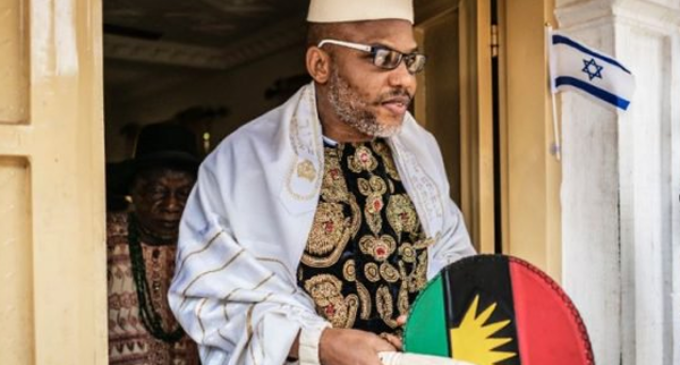
BY FRANCIS OBORJI
This article is about the crucial role of the victim of violence in situations of social conflicts and tensions in reconciliation and healing process. In a situation of social conflicts and tensions such as ours in Nigeria today, who has the key to reconciliation and healing, the aggressor or the victim?
In other words, between the wrongdoer and his victim, who holds the key to reconciliation and healing, the wrongdoer or his victim? Narrowing down the question to Nnamdi Kanu phenomenon (with all apologies to Dr.
Rueben Abati), between Nnamdi Kanu (his Igbo people) and the Nigerian state, who has the key to reconciliation and healing, Nigeria or the Igbo?
In discussing this issue, we take our inspiration from the Christian theology of reconciliation in social context. In Christian theology of social reconciliation, especially, in the writings of St. Paul the apostle, the key to reconciliation rests with the victim of violence, not the state or wrongdoer! Our reconciliation was accomplished not by Pontius Pilate or Herod. Not even by Emperor Cesar. It was accomplished by the victim of their cruelty, Jesus Christ.
The reconciliation with God and with one another as well as with all the created reality was achieved by the victim of that most cruel violence the world had ever witnessed, Jesus Christ, who was tortured, crucified and died on the cross for our liberation and eternal redemption. Jesus Christ was the victim par excellence of humans’ sinfulness and
captivity. The state and its allied institutions all conspired and violently killed the Son of God, Jesus Christ. Oppressive political structures, judiciary, traditional and religious institutions, all these structures of power, united in killing the Son of God, Jesus Christ.
With all due respects to all those who condemn Nnamdi Kanu or call for his head to be hanged, I refuse to see his phenomenon as a problem or threat to the Nigerian state! However, this does not mean, agreeing with everything Nnamdi Kanu says or does. It doesn’t even mean endorsing him or his movement for anything. It does not also mean calling for dissolution of Nigeria as a nation-state.
What it means in effect, is that Nnamdi Kanu phenomenon is a ‘Kairos’ moment for Nigeria’s rebirth or renaissance. It is a beckon on the Nigerian state to cease this opportunity to redeem itself. Nnamdi Kanu phenomenon falls within the ambient of what the Germans call “zeichen der zeit” (signs of time), or what Pope John XXIII, at the opening of Second Vatican Council, called ‘aggiornamento’ (update).
As a nation-state, Nigeria needs updating, open the windows, let in fresh air, allow the spirit of God to function and be free forever! The country is still living in an enclosure, wallowing in darkness and denial, enslaving itself, citizens, present and future generations. Nigeria needs to free itself and its citizens forever! To paraphrase, Nelson Mandela, Nnamdi Kanu phenomenon is an opportunity to “let freedom reign” in Nigeria.
A moment of crisis such as ours today in Nigeria is a ‘springtime’, an opportunity for redemption. As a ‘Kairos’ moment, it evokes the desire to take complete possession of the opportunity which the signs of time open before us. In the words of Pope Francis, it means to accept the tension between fullness and limitations, and give a priority to
time. Giving priority to signs of time means being concerned about initiating processes rather than possessing spaces:
“Time governs spaces, illumines them and makes them links in constantly expanding chain, with no possibility of return. What we need, then, is to give priority to actions, which generate new processes in society and engage other persons and groups who can develop them to the point where they bear fruit in significant historical events. Without
anxiety, but with clear convictions and tenacity” (Pope Francis, “Evangelii Gaudium”, n. 223).
In other words, Nnamdi Kanu and his IPOB youth movement’s call for self-determination of the Indigenous People of Biafra (IPOB) through legitimate means of referendum and non-violence, should not be seen as a problem or even as a threat to the state. Rather it is an opportunity God in his infinite mercy is offering us today as a nation state for
introspection towards reconciliation and healing.
What Reconciliation is Not
There are several misunderstandings of reconciliation and the call for unity in Nigeria today. For this, we need to get clear on what is and is not reconciliation. However, for lack of space, we shall focus only on an aspect here; that is, what the American theologian, Robert Schreiter calls ‘reconciliation as a hasty peace.’ This is false reconciliation.
Reconciliation as a hasty peace is a false one, which tries to deal with a history of violence by suppressing its memory. This kind of reconciliation is often called by the very perpetrators of violence who, either having seen what they have done or having realized the potential consequences of their actions, want to get on to a new and different
situation. They want the victims of violence to let bygones be bygones and exercise a ‘Christian’ forgiveness.
James H. Cone, the renowned African American theologian and exponent of Black theology disagrees with this approach to reconciliation. According to him, it does not only trivialize and ignore the sufferings that victims of violence have undergone but also ignore the source of the sufferings – namely, those who oppress and do violence to the victims, and now call for love, unity or integration, are members of one and the same group: the domineering ethnic or racial group.
By calling on those who have suffered to forget or overlook their suffering, the would-be reconcilers are in fact continuing the oppressive situation by saying, in effect, that the experiences of those who suffered are not important and therefore they themselves are unimportant to the process.
“To trivialize and ignore memory is to trivialize and ignore human identity, and to trivialize and ignore human identity is to trivializeand ignore human dignity.” (James H. Cone).
That is why reconciliation as a hasty peace and the so-called unity is actually the opposite of reconciliation. By forgetting the suffering, the victim is forgotten and the causes of suffering are never uncovered and confronted.
Reconciliation as a hasty peace and Nigeria’s type or concept of unity tries to escape an examination of causes of suffering. If the causes of suffering are not addressed, suffering is likely to continue; the wheel of violence, keeps turning, and more and more people get crushed. Reconciliation therefore, is a process that cannot be foreshortened; it keeps its own timetables.
What then is true reconciliation? True reconciliation requires respecting and often restoring the human dignity of the victim of violence. It opens the question of where a call to genuine reconciliation must originate.
While many may hope for reconciliation, there are really only certain people who have the moral authority to issue the call for reconciliation. These few may be moral authorities that both sides respect (that is the assumption that underlies the attempts of religious leaders to make this call).
However, somewhat paradoxically, the few who may have the moral authority to issue the call for reconciliation SHOULD COME FROM THOSE WHO HAVE SUFFERED MOST IN THE SITUATION, THE VICTIMS. The reason for this is quite simple. According to Robert Schreiter, the reason for a thesis that:
“We cannot forgive ourselves for the wrong of our past. Those whom we have injured must do that. Not to realize this is to confuse reconciliation with repentance. Repentance can originate from the side of those who have perpetrated violence, but reconciliation and forgiveness must come from the side of those who have suffered violence.” (Robert Schreiter).
Therefore, reconciliation as a hasty peace or the so-called Nigerian unity (like the current calls by some politicians and elites for restructuring), while often motivated by an urge to get beyond violence and continue the business, as usual, is not true reconciliation and healing. It covers up the enormity of what has been done and tries to foreshorten the process. It is often driven by the fear that remembering the violence of the past will lead to a new outbreak of hostility.
But suppressing the memory does not take the violence away; it only postpones its expurgation. Such attempt grows out of a fundamental misunderstanding of the process of reconciliation, not realizing that there is more to reconciliation than a cessation of violence.
Again, reconciliation involves a fundamental repair to human lives, especially the lives of those who have suffered. That repair takes time, time that can make participants fell insecure, but necessary time nonetheless for beginning a new life.
To choose reconciliation as a hasty peace or restore of a fragile unity does not acknowledge the deeply conflictive realities that create the chasms that reconciliation hopes to bridge. It also presumes that violence is quickly and easily overcome.
This is particularly the case in situations where the violence is covert or at least not overt to part of the population. Such is the case with the violence of ethnic-hate and marginalization as we have it in Nigeria today against the Igbo.
Hence, in Nigeria, the dominant group and their cohorts propagate the slogan: “To keep Nigeria one is a task that must be kept.” In doing so they forgot that over 3.5 millions of Igbo people were massacred by the Nigerian state during the Civil War in pursuance of that goal of keeping Nigeria one. Furthermore, what they failed to realize is that
keeping Nigeria one was the dominant ethnic and religious group’s terms and did not take into account the need to change some fundamental structures in the society, address the serious issues raised by the victims of state-sponsored violence.
Furthermore, it forgets that common people know that what often is sold as reasons by the Nigerian state for the task to ‘keep Nigeria one’ is nothing else than the greed for control and exploitation of oil and gas in Eastern Nigeria by the dominant ethnic group and ruling elites. For the dominant ethnic group and those in corridors of power, oil is more important than the lives and dignity of the common masses in Eastern Nigeria and elsewhere.
This is the sole reason behind all the preaching about the unity of the country by those in corridors of power, the dominant ethnic group, those who opposed the same Nigerian unity during the struggle for independence. It is also the driving force of those currently advocating for restructuring without getting to the heart of the Nigerian story.
The fact is that restructuring has no meaning without taking into consideration the memory of the victims of violence of the Nigerian state in the last 57 years.
As one writer recently said, the truth is that the answer to Nigeria’s problems is not just in restructuring because too much innocent blood has been split and shed by the Nigerian state over the last 57 years. ‘Restructuring is only a first step in the process and a means to a higher end.’
All these mean, that if the sources of conflicts are not named, examined, and taken away, restructuring has no meaning. Reconciliation and unity of the nation will not also come about. What we will have is a truce, not a peace or unity. This is the fact that those who have perpetuated violence or have been witting or unwitting accessories to
the violence finds difficult to accept.
Sometimes, religious bodies fall easy prey to this, since they are rarely the direct violators. It is often their silence, not their words, that makes them participants in the violation of those who suffer. The voices of those who suffer then become a very unwelcoming sound to their ears because they are made uncomfortable.
Nnamdi Kanu Phenomenon
According to Chinua Achebe, Nigeria’s problem has remained its Igbo resentment. Every ethnic group is, of course, something of a problem for Nigeria’s easy achievement of cohesive nationhood. But in a bid to hide its historical injustices and atrocities committed against the Igbo, the Nigerian state has continued to see the Igbo as a particular
irritant, a special thorn in the flesh of its body-politic. In the words of Achebe:
“Nigerians of all other ethnic groups will probably achieve consensus on no other matter than their common resentment of the Igbo. They would all describe them as aggressive, arrogant and clannish. Most would add grasping and greedy (although the performance of the Yoruba since the end of the Civil War has tended to put the prize for greed in some doubt).” (Chinua Achebe, “The Trouble with Nigeria”, p. 45).
However, the origin of the anti-Igbo feeling or national resentment is as old as Nigeria and quite as complicated. It escalated significantly after the 1966-1967 Igbo pogrom in Northern Nigeria and the consequent Civil War (1967-1970), which gave Nigeria “a perfect and legitimate excuse to cast the Igbo in the role of treasonable felony, a wrecker of the nation.”
Moreover, had the Igbo been a minor ethnic group of a few hundred thousand, their perceived menace might have been easily and quietly contained. “But they ran in their millions, and in that manner moved out of their villages and homes, scattered and virtually in every nook and corner of the country and beyond, thriving in areas where even their hosts could not. They ceased every opportunity at their disposal with self-confidence engendered by their open society and their belief that one man is as good as another and that no condition is permanent.”
This is the Igbo reality in Nigeria today, Nnamdi Kanu has emerged to epitomize. To think that it can be suppressed and swept under carpet through government highhandedness is to repeat the old mistakes in dealing with the Igbo question in Nigeria. The best thing for Nigeria as an entity to do, I think, should be to initiate a process of dialogue
with Nnamdi Kanu, what he represents for his Igbo people.
Let the Nigerian government do no harm to Nnamdi Kanu and his group anymore. Acknowledge his significance in the history of the nation at this particular moment. Nnamdi Kanu is surrounded by young people. The future belongs to them. The government can only invite them, engage with them, dialogue and initiate a ‘home-made’ process in renegotiating Nigeria as an entity for the sake of the present and future generations.
The question is not whether these young people were born before or after the Biafra War to know about the consequences of what they are doing. No! Rather it is about what is the stake of their future in Nigeria today and tomorrow? Have these young people any future in Nigeria as it operates presently. This is the fundamental question we should be asking and addressing. These are the motivations behind the agitations of young people against the Nigerian state as we have it today.
This means that I disagree totally with all those writers, social commentators and politicians who make every effort to demonize Nnamdi Kanu and label his group as violent. One famous social commentator and writer recently went to the extent of saying that Nnamdi Kanu phenomenon poses more danger to Nigerian state than Boko Haram extremist Islamic movement in North East of the country.
In the same vein, a prominent politician, an Ex-Army General, was recently, alleged to have called for the head of Nnamdi Kanu. I think that is going too far. It is very unfair! Should such a thing happen, that may lead to an early demise of the Nigerian state as we know it today? Because these young people and their generation are determined to
fight their fight to the end no matter what it takes. Do not dare them with violence! Dialogue and engage them in the debate for the future of the land and our people as a whole.
I also disagree with the social commentator and author who alleges that Nnamdi Kanu is more dangerous than Boko Haram terrorists. Interestingly, the author of that piece carefully, avoided mentioning the Fulani herdsmen militia, the fourth most dangerous terrorist group in the world today, marauding freely with AK47, killing and maiming innocent citizens all over Nigeria without any reprisal from the present Federal Government. One wonders whose interest the author wants to serve by exonerating terrorist groups such as Boko Haram and Fulani herdsmen militia and singling out Nnamdi Kanu and his IPOB non-violence movement as the most dangerous threat to Nigerian state today. This type of language may not be helpful after all in the desired dialogue with Nnamdi Kanu and his group.
Without claiming to speak for the IPOB people, however, I don’t think that Nnamdi Kanu and his group endanger anybody’s life. They are not a threat to the nation either. They are peaceful and non-violent group, seeking self-determination of their people through legitimate and legal means of referendum. They are not the first and will not be the last to employ and seek these means for achieving self-determination of indigenous peoples in world history.
Again, Nnamdi Kanu and his group are not terrorist group. In fact, they are victims of a repressive state-sponsored violence. It is absolutely, wrong therefore, for any individual or government to call for the head of Nnamdi Kanu or outlaw his movement. As things are at present, Nigeria needs Nnamdi Kanu to redeem itself.
Non-violent protests for self-determination is not terrorism. Nnamdi Kanu and his IPOB group are not killing anybody or causing disorder to public peace. They do their protests in an orderly and civilized manner. The likes we see in Europe and North America This is why it is difficult to comprehend why in the last two yearsalone, hundreds of IPOB members have been killed violently, a good number wounded by the Military and Police during their peaceful non-violence protests in various parts of Eastern Nigeria. The Amnesty International had already indicted Nigerian Military and Government for killing about 150 members of IPOB in the last two years alone. Many of IPOB members are still in detention in various Nigerian prisons without trials or any court order.
Nnamdi Kanu and his IPOB quest for self-determination is lawful. It found justification in Article 1 (2) of the United Nations (UN) Charter and Article 20 (1) of the African Charter of Human and Peoples Rights, to which Nigeria is a signatory.
In fact, what many people have failed to understand is that those movements agitating for self-determination in various parts of Nigeria are not the problem the country has. As Dr. Olisa Agbakoba recently said, the Nigerian problem rests on the fact that despite all the agitations for self-determination by various ethnic components, “the Federal Government has refused to initiate a process to put the continued existence of Nigeria as a sovereign entity to a debate, because restructuring was not the roadmap to federalism. Rather the call for restructuring is a political calculation by the elite to grab power in 2019.” Dr. Agbakoba went further say:
“It is wrong to say Nigeria is insoluble. There is nothing sacrosanct about Nigeria. It can blow up anytime. It is an artificial creation, which was made in 1914 and when it was amalgamated, we were not there. It was amalgamated in the interest of the colonialists… It was unfortunate that since 1914 when amalgamation was thrust on the people, there had not been any home-grown process to resolve the will of the people to co-exist.” (Olisa Agbakoba).
This is the problem with Nigeria, not Nnamdi Kanu and his IPOB. What Nnamdi Kanu represents for Nigeria today is that clarion call to the Federal Government to initiate a ‘home-grown process to resolve the will of the people to co-exist.’
Conclusion
All said and done, it is obvious that Nnamdi Kanu is doing his thing in a very civilized and legitimate way, through non-violence and call for referendum. Moreover, looking at the crowd following him, is obvious he has the mandate of majority of his people, especially, the younger generation to whom the future belongs.
Nnamdi Kanu is not god, savior or messiah in the theological or religious sense of those terms, because he is a mortal being like the rest of us. However, his generation of Igbo youth see him as their hope, a hero in the search for a better tomorrow.
For majority of his people, especially, the younger generation, the name ‘Nnamdi Kanu’, signifies hope, freedom, self-reliance and determination. It is a ‘spirit’, a ‘soul’ that nobody can squash any further and go free from the wrath of the people or their God. The only way to catch up with its’ force is to recognize it and dialogue. To confront non-violent spirit with violence is a mistake Nigeria should not dare to repeat.
This is because, Nnamdi Kanu is perhaps, inspired by the philosophy and lives of those who have toed that road of non-violence before him in modern history.
Accept or reject it, Nnamdi Kanu has stepped into the shoes of such great historical figures of non-violence movements such as Mahatma Gandhi of India and Martin Luther King Jr. of the Black Americans’ Civil Rights Movement. From all indications, and like these great historical figures, Nnamdi Kanu does his own with full determination, focus and selflessness. Politicians will not succeed in bribing or corrupting him. He has a date with history. Period!
Therefore, Nnamdi Kanu phenomenon is a gain, not a loss to the nation. It is not a bad omen but a grace. Nigeria as a state must cease this gain, grace and invest on it profitably. It is an opportunity towards a permanent resolution of Nigeria’s longest lingering problem, the Igbo question, especially, the unanswered questions of the Biafra pogroms and the future of the Nigerian state itself!
Oborji, a Roman Catholic priest, is a professor of missiology (mission theology) in a Pontifical University, Rome
Views expressed by contributors are strictly personal and not of TheCable.






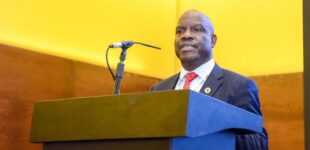

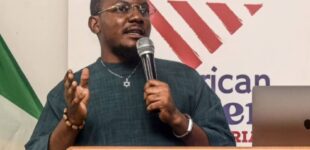

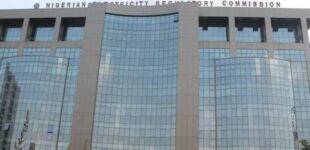

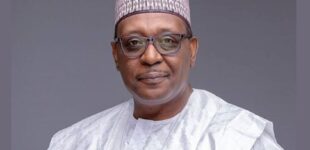


Your comment..I will like to commend the writer for that wonderful,inspiring analysis and truth.D Nnandi Kanu phenomenon is a good concept so far but he needs to carry all His Igbo allies and present a Proposal or Request from Nigeria..No:
(What role does an Igbo man plays in this Administration?
Y are thecgbo’s
Nice one,the quest for self determination is never a crime